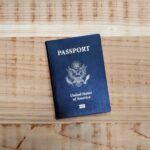Welcome to FindBiometrics’ digest of identity industry news. Here’s what you need to know about the world of digital identity and biometrics today:
Facial Recognition Draws Regulatory and Intelligence Concerns
Regulators from Canada and Europe convened for the 44th Global Privacy Assembly, at which they adopted a resolution on the appropriate use of facial recognition technology. The resolution emphasized the importance of human rights, transparency, accountability, data protection, and legality considerations, with 120 authorities agreeing to work together and with external stakeholders to assess the real-world application of their principles going forward.
United States authorities have been warning their Mexican counterparts against the use of border monitoring technologies bought from Nuctech, a company that is said to be linked to the Chinese government. As The Yucatan Times reports, a State Department intelligence report asserted that “deficiencies” in the Nuctech technologies “could create opportunities for exploitation by the Chinese government,” while a Department of Homeland Security intelligence report flagged Nuctech’s use of facial recognition technology as a privacy threat. Discovered by Mexicanos Contra la Corrupción, the reports were issued this past spring, but Mexico went ahead with its deployments of Nuctech’s technology.
An unnamed activist says they have heard reports about the installation of China-made facial recognition cameras in Kosovo, reports Foreign Policy. The news comes amid escalating tensions between the country’s ethnic Serbs and Albanians, fueled in part by the Kosovo government’s requirement that local Serbs obtain Kosovo IDs and license plates.
Niger Announces Biometric ID Project
Authorities in Niger have announced the launch of a biometric ID project that will be carried out in collaboration with the World Bank. Dubbed WURI-Niger, the ID project will assign a unique identification number to each citizen, and link it to their biometrics. It’s part of a broader West Africa Unique Identification for Regional Integration and Inclusion (WURI) project spanning the Economic Community of West African States (ECOWAS), with WURI-Niger designed to ultimately be interoperable across the ECOWAS region.
Ghana to Disconnect Unregistered SIMs
Mobile operators in Ghana will disconnect the SIMs of a potentially large number of mobile users tomorrow, in accordance with a directive from the Ministry of Communications and Digitization that requires biometric SIM registration on the part of consumers. An executive with MTN Ghana has warned that the MNO still has “a significant number of customers” who have not yet registered, and is urging them to complete the process ahead of the deadline.
Android Trojan Records Biometric Authentication Sessions
The cybersecurity group Cyble is warning about a revamped piece of malware called “Drinik” that is posing as the Income Tax Department of India in an Android-focused phishing campaign. Part of the trojan’s phishing process involves the display of a biometric authentication page, with the malware using screen and keystroke recording to ‘steal’ the user’s credentials, Cyble reports.
Tape and Reel Maker Settles BIPA Lawsuit
Mid-America Taping & Reeling, a manufacturer that has been serving the electronics industry since the early 1980s, has reached a settlement in a lawsuit filed under Illinois’s Biometric Information Privacy Act (BIPA), agreeing to pay out a total of $151,000 to claimants. The company was accused of failing to properly obtain consent to collect its employees’ fingerprint data for use in a biometric time and attendance tracking system.
Kerala Transport Authority Implements Biometric Attendance
The Kerala State Road Transport Corporation will implement a biometric time and attendance system for its workers that is connected to Aadhaar, the Indian govenrment’s wide-reaching national ID program. Introduced by the state’s Transport Minister will automatically be tied to workers’ salaries, and is expected to help ensure that accurate records of working hours are kept.
Hanoi Airport to Pilot Biometric Passenger Screening
Hanoi’s Noi Bai International Airport will trial the use of biometric citizen ID cards for passengers travelling on domestic flights. The pilot will be conducted in collaboration with the Civil Aviation Authority of Vietnam (CAAV), and is expected to run for six months. Travellers’ faces will automatically be recognized at certain airport checkpoints, with the chip-embedded cards storing fingerprint and face data.
Singapore Hospital Network Trials Biometric Visitor Screening
Singapore’s largest hospital network, SingHealth, is allowing visitors to its Outram Community Hospital and SingHealth Tower to sign up for an automated biometric identification system. The system is based on SingPass, a selfie-based identification app used to access government services, and is aimed at reducing wait times for visitors. In addition to performing facial recognition, the system scans visitors’ body temperature, and can deny entry to those whose temperatures indicate fever. Authorities expect to roll out the solution to additional locations in the future.
EV Makers Integrate Facial Recognition
California-based electric car company Mullen Automotive has launched a new vehicle featuring biometric technology. The Mullen FIVE sedan’s infotainment system is built around an AI assistant dubbed ‘Persona’, which features a facial recognition system that personalizes vehicle settings based on the identified driver.
FAW Toyota has become the latest car brand to launch a vehicle featuring facial recognition technology. The bZ4X electric SUV also has a voice command function and supports the use of digital car keys.
BIO-key Wins Another PortalGuard Client
Santa Rosa Junio College has become the latest institution of higher education to adopt BIO-key’s PortalGuard Single Sign-On solution. In announcing the deployment, BIO-key emphasized the cost savings associated with its cloud-based model, which it described as “ideally suited to the on-campus/off-campus nature of learning today.” The higher education sector has proven receptive to BIO-key’s PortalGuard pitch.
Fraudsters Tricked Rideshare Platform’s Biometric Driver Verification
A group of fraudsters allegedly used doctored driver’s license images to fool identity verification systems meant to verify drivers for a rideshare and delivery service companies. The news comes by way of the Department of Justice’s Massachusetts office, which announced the indictment of another one of the 19 co-conspirators over the weekend. The group used stolen and falsified identities to open driver accounts and sell them to individuals who would not otherwise qualify to be drivers.
–
October 31, 2022 – by Alex Perala









Follow Us